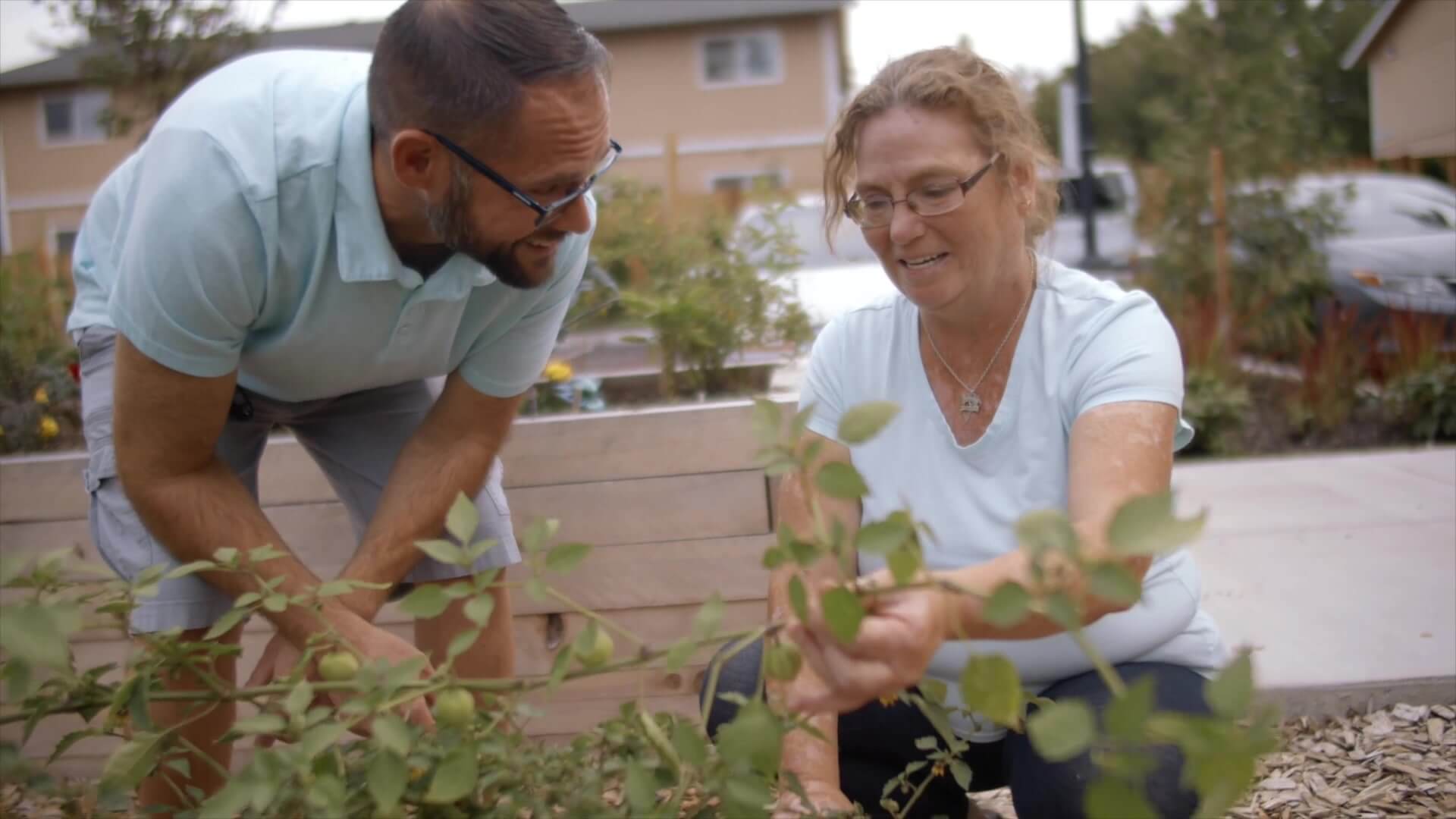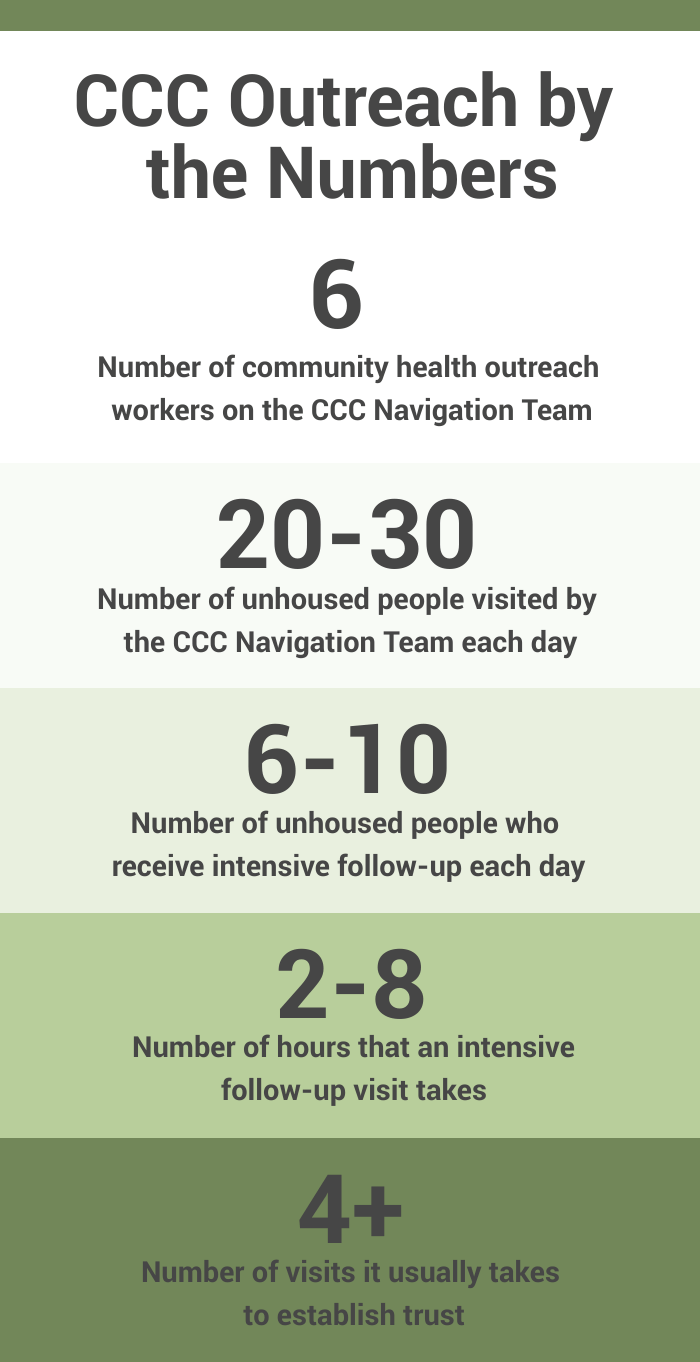Khối nội dung này không có bản xem trước.

Living in a tent on the streets can be traumatic. It’s a situation Cynthia knows all too well.
After her housing situation with her daughter didn’t work out, Cynthia found herself living outside. Paired with physical challenges, life proved difficult. And then Cynthia met a CCC community health outreach worker. This team is charged with meeting people where they’re at. They carry backpacks stocked with food, water and other necessities which they pass out to folks experiencing homelessness, and slowly they build relationships and connect people with resources.
Casey Culley, a former CCC community health outreach worker, visited Cynthia’s tent every day, checking to see if she was OK. He and his team brought Cynthia lunch and bottles of water. “He didn’t push CCC on me,” says Cynthia. “He explained what was going on and asked if I wanted help.” Most of all, he listened to her.
This approach is critical to effective outreach. According to CCC’s Director of Outreach Drew Grabham, “Outreach isn’t about bringing the answers to them. Outreach is about bringing me and some of the resources and knowledge I have and helping them figure out what their next steps are.” He says it usually takes at least four visits to develop “any sense of trust and safety.”
Building relationships takes time and a consistent presence. “Consistency…is part of rapport building and trust building…showing up, being there when you say you’re going to be there, even if it’s just to say hello and offer socks and hygiene kits, even if it’s just, hey, how’s it going today? And if they don’t want to interact, you don’t take it personally. You say, OK, well, I’ll see you tomorrow or the next day, and you come back,” says Casey.
Fortunately, Cynthia did not face what many unhoused Portlanders are currently facing—having their campsites swept and being displaced. “When somebody is facing that immediate eviction from their location, we have to go into crisis mode to help them stabilize…that’s a pretty hard place to engage from because it’s so traumatizing for them,” says Drew. If they have built a connection with an outreach worker, that connection is often severed simply because that outreach worker may no longer know where to find them. “Maybe we find them in a month or two. Or maybe we don’t find them at all.”
As Cynthia’s relationship with Casey strengthened, he helped her get her birth certificate, driver’s license and eventually health coverage. He also alerted Cynthia when CCC’s Cedar Commons đã mở.
“As soon as he found out that Cedar Commons was open, he brought down his laptop and we stood there, and we put out all the information so I could be on the waitlist. It took me less than a week to get into Cedar Commons. To get my home,” says Cynthia.

Cynthia has also benefited from receiving primary care at the Trung tâm Blackburn as well as mental health counseling. Now she looks forward to every day and “things just keep progressing.” She is proud of her work in the gardens at Cedar Commons where she grows over 15 types of fruits, vegetables and herbs. She also serves on the CCC Tenant Advisory Council, where she shares feedback from Cedar Commons residents and advises CCC on projects, initiatives and the design of new buildings and programs. As Casey says, “she’s a superstar.”
Without CCC, she says, “I would not have been able to get my confidence back.”
She’s faced many challenges, but she doesn’t have regrets.
I wouldn’t be the person I am today if I didn’t have that journey. Now I help people here [at Cedar Commons], and I welcome them to the community.

Sự phục hồi là có thể—chúng ta thấy điều đó mỗi ngày. Hãy ủng hộ Central City Concern và trao tặng món quà hy vọng và chữa lành cho những người hàng xóm đang cần.